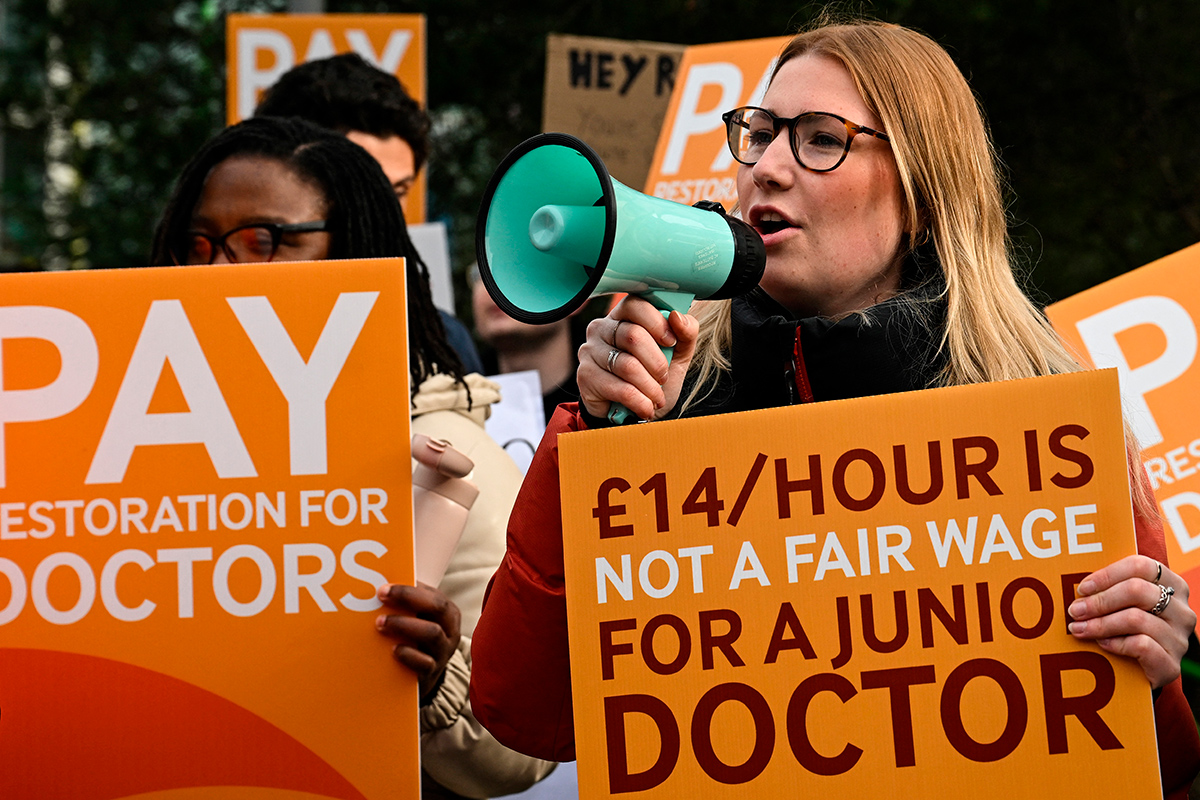Since its founding in 1948, Britain’s renowned National Health Service has suffered greatly from the crises experienced throughout the UK. But maybe not like now. To the point that this week they were almost paralyzed by a 48-hour strike carried out by medical workers and residents demanding better wages and working conditions. This is not the first action to force public hospitals to be overwhelmed and thousands of shifts have been postponed due to the impact of the conflict.
To consider the impact of the strike, Nick Hulme, chief executive of Ipswich and Colchester hospital, confirmed that those protesting made up at least half the number of doctors in the UK system. And as a result the disease affects around two-thirds of the population, in a country of more than 63 million people.
“This government is failing us and its patients,” said Vishal Sharma, president of the British Medical Association (BMA). “We are undervalued and overworked,” he said. Perhaps his observations are not new for many citizens in large parts of the world, especially in Latin American countries, which also suffer from state policies that bombard public medicine to the detriment of private activities, which are increasingly prioritized and subsidized. . In the last decade alone, total spending on health services in the UK, which in 2012 amounted to £127 billion, fell by more than 20%. In light of this, healthcare professionals have experienced salary cuts of more than 25% since 2008.
One of the ways the UK health system has gone rogue in recent years is by recruiting personnel from overseas, who invariably have very low wages and very poor working conditions. Even at the end of 2022, a scandal emerged when many of them admitted to being exploited and reported excessive workloads that they feared endangering patients’ health. A BBC investigation, in this regard, found that one well-known private company employed Nigerian doctors to work in its hospitals, under conditions that are not permitted by public health, especially in towns on the outskirts of London. For example, one worker of African origin, a resident of Leeds, caused a lot of noise when he said: “I’m working in a hospital but I feel like I’m in prison.”
This strike involving the British community is understood to be part of a new wave of protest and mobilization that is also affecting many other trade unions, among them train drivers and airport staff, as well as workers on the country’s rail network, which they are blocking (when they are not paralyzing ) transport and those who announced decisive action to demand their salaries exceed the record inflation of 8.7%. «

“Internet trailblazer. Troublemaker. Passionate alcohol lover. Beer advocate. Zombie ninja.”







